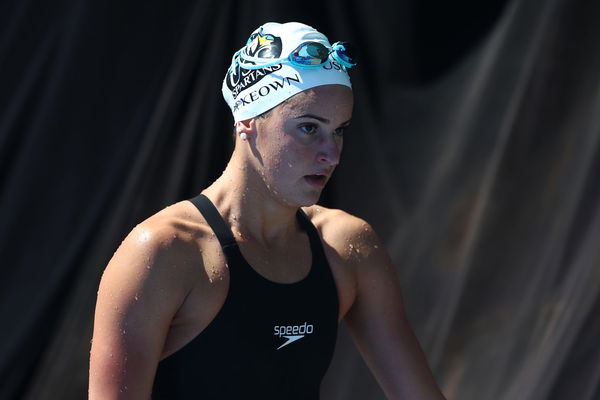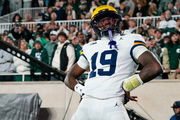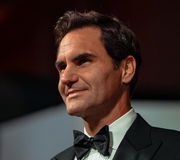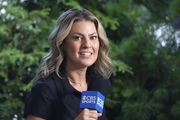
Reuters
Paris 2024 Olympics – Swimming – Women’s 200m Backstroke Final – Paris La Defense Arena, Nanterre, France – August 02, 2024. Kaylee McKeown of Australia celebrates after setting an Olympic record to win gold REUTERS/Hannah Mckay

Reuters
Paris 2024 Olympics – Swimming – Women’s 200m Backstroke Final – Paris La Defense Arena, Nanterre, France – August 02, 2024. Kaylee McKeown of Australia celebrates after setting an Olympic record to win gold REUTERS/Hannah Mckay
Kaylee McKeown’s journey has been nothing short of incredible. She started making waves at 15, competing in Hawaii, and now she’s claimed gold in both the 100m and 200m backstroke at the Paris Olympics. Just when it seemed she couldn’t top that, she shattered the short course 100-meter backstroke world record with a time of 54.56.
Watch What’s Trending Now!
Then, in early October, she surprised everyone by announcing she’d be withdrawing from December’s World Short Course Championships in Budapest. In a heartfelt Instagram post, she explained, “Today I made the decision to pull out of the 2024 World Short Course team; it’s not something I wanted to do but needed to do.”
Kaylee recently shared about the stress she has faced over the past five years. Both physically and mentally, and expressed the importance of taking a break from the relentless excitement of competing activities. Although she opted to withdraw from the World Short Course Championships for now, she remains committed to participating in the World Cups. So, why stick with the World Cups? On the Unfiltered Waters Podcast on YouTube, in an episode called “Kaylee McKeown | Unfiltered Waters,” she shared that the World Cups give her a different kind of challenge!
ADVERTISEMENT

ADVERTISEMENT
Kaylee McKeown revealed, “I was actually, I’ve been quite down post-Olympics. I know I was planning on having from August through to December just completely away from the pool, and I kind of just sat in my own skin in my apartment by myself with my dogs, and I was like, ‘This is really quite depressing.’” Realizing that her isolation wasn’t beneficial, she decided to make a last-minute change and signed up for the World Cups. “I’m so excited to be heading away for that in a few weeks,” she added.
The trilogy of events kicks off in Shanghai, China, from October 18 to 20. Then heads to Incheon in South Korea from October 24 to 26 before wrapping up in Singapore from October 31 to November 2 for the finale. Despite her victory in Paris, why does she still sense a void within herself?
ADVERTISEMENT
Kaylee McKeown coping with the emotional toll
After achieving success at the 2024 Paris Olympics, where she excelled in the 100-meter and 200-meter backstroke events and also won a bronze in the 200-meter medley, Kaylee McKeown found herself grappling with feelings of emptiness and loneliness upon returning to everyday life post-Olympics glory as one of Australia’s celebrated athletes at the Games. She also played a part in Australia winning the silver medal in the women’s 4×100 meter medley and bronze in the mixed medley event at the Olympics, adding up to a total of nine medals for her collection, which includes three gold medals from the 2020 Tokyo Olympics.
ADVERTISEMENT

However, the thrill of Olympic glory has been followed by an emotional low. In a candid interaction during an Instagram “Ask me a question” session, McKeown reflected on the challenges she has faced since returning home. “It’s been extremely hard coming from such a high-pressure environment,” she shared. “I did more than I thought I could ever achieve in Paris. Riding the wave of success and enjoyment has come down at some point! Since coming home, I’ve felt very empty and lonely. I’m such a routine-oriented person, so to now be home and have no current goals or training schedule—it’s been a reality check.”
ADVERTISEMENT
Despite being selected as Australia’s flag bearer for the closing ceremony alongside sailor Matthew Wearn and reveling in the joy of competing, McKeown acknowledged the emotional and physical drain of racing. “Racing can become extremely draining! I was absolutely in awe of my performances, but more in awe of the Australian Team. If I had one highlight from Paris, it was pure joy and relief,” she stated. In the end, Kaylee McKeown’s journey shows us that even the biggest successes can come with their own emotional challenges that athletes have to work through.
Top Stories
Greg Biffle’s $4M Worth Prized Possession Still Without a Buyer Leaves NASCAR Fans Heartbroken

LIV Golf Braces for Another Possible Exit in Wake of Brooks Koepka Departure

Sean Payton Announces Retirement Plans as Broncos HC Demands Improvement From Bo Nix & Co. Before Playoffs

Biff Poggi All But Confirms Bryce Underwood’s Michigan Future After Announcing His Own Departure

Roger Federer Draws Criticism from Swiss Government Chief for Tourism Boom in Country

Amanda Balionis Confirms New Relationship Ending Months of Rumors

ADVERTISEMENT
ADVERTISEMENT
ADVERTISEMENT

